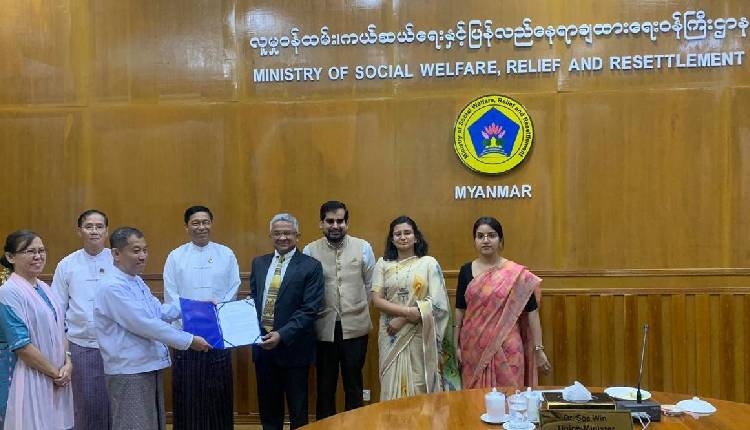
Nay Pyi Taw: India has launched several key projects aimed at enhancing civilian infrastructure and improving the living standards of people in Myanmar, backed by an annual grant of $500,000. On Friday, India’s Ambassador to Myanmar, Abhay Thakur, inaugurated the Border Areas Development Programme (BADP) and the Rakhine State Development Programme (RSDP) projects, alongside Myanmar’s Union Minister for Social Welfare, Relief and Resettlement, Dr. Soe Win, and Border Affairs Minister Lt Gen. Tun Tun Naung.
As stated by the Indian Embassy in Myanmar, these initiatives will provide much-needed socio-economic amenities tailored to local needs in Chin State and the Naga Self-Administered Zone. In Chin State, 16 roads and bridges alongside one education center have been completed, while the Naga Self-Administered Zone has seen the successful development of 19 roads and bridges and two education centers.
The Embassy announced that a total of 38 projects, amounting to $4.5 million, have been initiated, focusing on essential services and environmental sustainability. Noteworthy projects include a new water supply system in Gwa township and an incinerator in Mrauk U township, which total an expenditure of $609,020.
Under the BADP and RSDP frameworks, the Indian government provides $5 million annually as financial assistance through a Memorandum of Understanding (MoU). These efforts aim to enhance infrastructure and quality of life across various sectors, including water supply, healthcare, electricity, road and school construction, and education.
Last year, similar initiatives also supported renewable energy, e-learning, and rural infrastructure projects in regions such as Yangon, Nay Pyi Taw, Tanintharyi, Sagaing, Magway, and Mandalay.
This collaborative effort reflects both governments’ dedication to empowering communities in border areas like the Sagaing region, Chin State, and Rakhine State, promoting sustainable development and improving living conditions for the people of Myanmar. The recent event comes on the heels of an October signing ceremony for five Quick Impact Projects (QIP) aimed at enhancing civilian infrastructure in agriculture, rural development, education, handloom, and disaster risk reduction across Myanmar.
